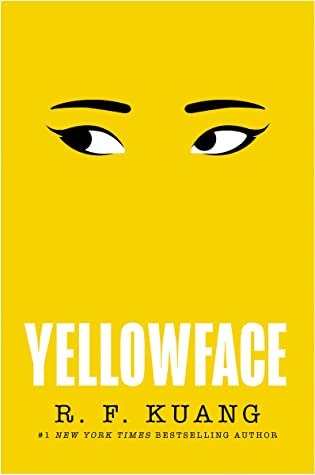 Yellowface by R.F. Kuang
Yellowface by R.F. Kuang Format: eARC
Source: supplied by publisher via Edelweiss
Formats available: hardcover, paperback, ebook, audiobook
Genres: literary fiction
Pages: 336
Published by William Morrow on May 16, 2023
Purchasing Info: Author's Website, Publisher's Website, Amazon, Barnes & Noble, Kobo, Bookshop.org
Goodreads
What's the harm in a pseudonym? New York Times bestselling sensation Juniper Song is not who she says she is, she didn't write the book she claims she wrote, and she is most certainly not Asian American--in this chilling and hilariously cutting novel from R. F. Kuang.
Authors June Hayward and Athena Liu were supposed to be twin rising stars: same year at Yale, same debut year in publishing. But Athena's a cross-genre literary darling, and June didn't even get a paperback release. Nobody wants stories about basic white girls, June thinks.
So when June witnesses Athena's death in a freak accident, she acts on impulse: she steals Athena's just-finished masterpiece, an experimental novel about the unsung contributions of Chinese laborers to the British and French war efforts during World War I.
So what if June edits Athena's novel and sends it to her agent as her own work? So what if she lets her new publisher rebrand her as Juniper Song--complete with an ambiguously ethnic author photo? Doesn't this piece of history deserve to be told, whoever the teller? That's what June claims, and the New York Times bestseller list seems to agree.
But June can't get away from Athena's shadow, and emerging evidence threatens to bring June's (stolen) success down around her. As June races to protect her secret, she discovers exactly how far she will go to keep what she thinks she deserves.
With its totally immersive first-person voice, Yellowface takes on questions of diversity, racism, and cultural appropriation not only in the publishing industry but the persistent erasure of Asian-American voices and history by Western white society. R. F. Kuang's novel is timely, razor-sharp, and eminently readable.
My Review:
In the beginning, Yellowface read like a bit of a thriller. In that beginning, 20something Yale MFA graduates Athena Liu and June Hayward are both published authors. But Athena is a self-absorbed cross-genre media darling, and June Hayward is just a typical white, MFA graduate writer whose first novel didn’t even get a paperback reprint.
Or at least, that’s how it seems from June’s own self-absorbed, self-justifying and self-flagellating perspective.
But a night on the town leads to a drunken pancake eating binge in Athena’s expensive DC apartment leads to the media darling’s accidental death by pancake. She glues her own throat closed when a partially uncooked pancake gets stuck in her windpipe. It’s completely tragic, more than a bit comic – and a huge opportunity for her hard-done-by and totally ignored but only friend.
The only copy of Athena’s latest manuscript is waiting by Athena’s typewriter for a curious, desperate and determined fellow author to pick up on her way out the door – after she’s cleared of any possibility of murdering her friend. Because she honestly didn’t.
Which may be the last honest thing that June Hayward says or does in reference to the late Athena Liu. Because once she’s edited that poor, orphan manuscript and presented it as her own, lying to pretty much everyone about pretty much everything is her only way forward.
To literary fame and stardom. To paranoia. To exposure. To infamy.
Escape Rating C: I probably re-wrote this review two or three times – and several more times in my head. Because first I needed to rant a bit. Then I needed to look back at the rant and bring it back down to Earth. Then I needed to have a cocoa and a lie down as I realized that I’d gone off the rails in contradictory directions.
Because there’s so much to unpack in the story of Yellowface – and in what it’s saying about the publishing industry and the way that some authors get anointed and others are cast in shadow. The way that racism and other isms affect both parts of that equation, the anointing and the shadowing, and that the humans involved in all of it throw their own biases over everything – with both the best and the worst of intentions and whether they intend to at all or not.
But, and this is the very big but where my own reading of the book went more than a bit pear-shaped, is that no matter how much truth is being told – and a TON of truth is being told – it still has to be readable and it still has to tell a good story. And that’s where Yellowface fell down on its job – at least for this reader.
I’ll confess that I would have been all in if this had been the thriller I was originally hoping it would be. Someone IS stalking June, but the revenge that is going to be served cold is on ice and locked in a deep-freeze by the time we get to it. The fast pace of a thriller got bogged down in the slow, angst-riddled, self-absorbed pace of literary fiction. June’s endless self-flagellation and self-deception just got boring because there was so much of it.
As the story is told in June’s first-person perspective, we spend the story inside her head and that was a place I tired of being imprisoned in relatively early on.
The meat of the story is intended to be a satire of the publishing industry and its long history of racism and cultural appropriation and the erasure of Asian voices as well as any other voices that are outside the so-called mainstream as defined by Western white society that it has created to center itself above all others.
But the method of satire used in Yellowface is exaggeration. The others are Incongruity, Reversal and Parody. All are used but it’s the exaggeration that stood out. Everything that the author had to say about the way that the publishing industry treats authors outside of its self-defined ‘mainstream’ read as utterly true. It’s all real and it’s all pretty much that bad.
Howsomever, just as June’s self-deception and self-flagellation is so constant that the reader feels equally flagellated, so too with the endless drumbeat of how truly awful conditions in the publishing industry in general and how pervasive situations are in the world at large, reaches a crescendo that never lets up or moves on with the story.
I left Yellowface with conflicting thoughts and feelings. The author had a lot of very important things to say about serious issues, but the vehicle through which those things were conveyed did not work for this reader. Your reading mileage may definitely vary. A LOT of readers have LOVED this book. I’m just not one of them.

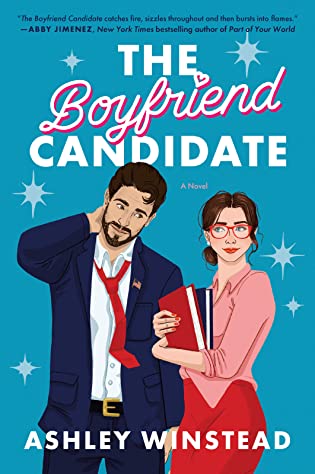 The Boyfriend Candidate by
The Boyfriend Candidate by 
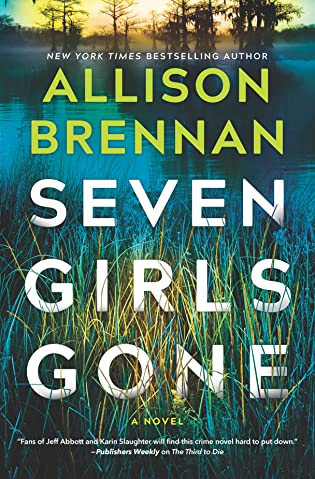 Seven Girls Gone (Quinn & Costa, #4) by
Seven Girls Gone (Quinn & Costa, #4) by  Escape Rating A-: I picked this up for two reasons. First and foremost, because I fell straight into the plot and the team dynamics of this bunch when I read the second book in the
Escape Rating A-: I picked this up for two reasons. First and foremost, because I fell straight into the plot and the team dynamics of this bunch when I read the second book in the  But that’s not Costa’s job. His job is to arrest the perpetrators with enough evidence to make the charges stick all the way to long jail terms – and to protect his team at all costs. Before all is said and done, and for once more is done than said and not the other way around, that cost almost becomes too high to pay.
But that’s not Costa’s job. His job is to arrest the perpetrators with enough evidence to make the charges stick all the way to long jail terms – and to protect his team at all costs. Before all is said and done, and for once more is done than said and not the other way around, that cost almost becomes too high to pay. The Bride Wore White (Burning Cove, California, 7) by
The Bride Wore White (Burning Cove, California, 7) by  The help of someone who both accepts the supernatural community AND knows how to get things “fixed”. Prudence goes to Burning Cove California to just about throw herself on the mercy of Luther Pell, the owner of the exclusive Burning Cove Hotel and one of the central characters of both the place and the series that began with
The help of someone who both accepts the supernatural community AND knows how to get things “fixed”. Prudence goes to Burning Cove California to just about throw herself on the mercy of Luther Pell, the owner of the exclusive Burning Cove Hotel and one of the central characters of both the place and the series that began with  Burning Cove as a place and a series, and The Bride Wore White in particular, have all the elements to mix spellbinding suspense, a satisfying mystery and a delightful romance into one delicious cocktail of a story.
Burning Cove as a place and a series, and The Bride Wore White in particular, have all the elements to mix spellbinding suspense, a satisfying mystery and a delightful romance into one delicious cocktail of a story.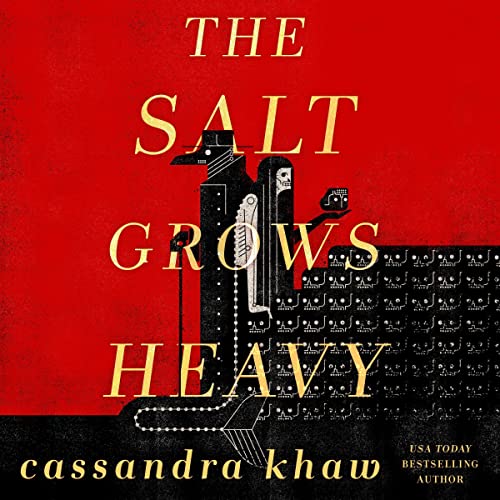 The Salt Grows Heavy by
The Salt Grows Heavy by 
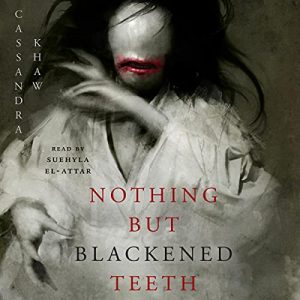 It wasn’t quite as cohesive a story as
It wasn’t quite as cohesive a story as  The Beach Reads Bookshop by
The Beach Reads Bookshop by 
 The Comeback Cowboy by
The Comeback Cowboy by  Happy Place by
Happy Place by  Escape Rating B+: I went into Happy Place hoping for another
Escape Rating B+: I went into Happy Place hoping for another 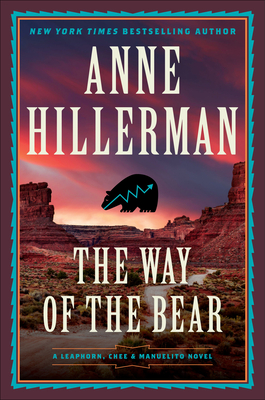 The Way of the Bear (Leaphorn, Chee & Manuelito #8) by
The Way of the Bear (Leaphorn, Chee & Manuelito #8) by  Missed so much, in fact, that Tony Hillerman’s daughter Anne revived the series with
Missed so much, in fact, that Tony Hillerman’s daughter Anne revived the series with 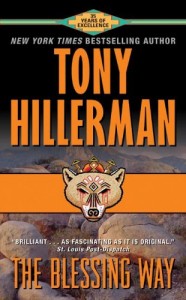 Part of what I enjoy about the series is the way that it explores – not just a compelling mystery set in a beautiful part of the country told from the perspective of someone who is familiar with it – but the way that it takes the usual trope of the push-pull between two investigators with two different approaches to the work and layers it not just with the tensions that occur in a romantic partnership in the same branch of the same work – because both of things have been done before and done well.
Part of what I enjoy about the series is the way that it explores – not just a compelling mystery set in a beautiful part of the country told from the perspective of someone who is familiar with it – but the way that it takes the usual trope of the push-pull between two investigators with two different approaches to the work and layers it not just with the tensions that occur in a romantic partnership in the same branch of the same work – because both of things have been done before and done well. Our Lady of Mysterious Ailments by
Our Lady of Mysterious Ailments by  Escape Rating A+: Our Lady of Mysterious Ailments is just like
Escape Rating A+: Our Lady of Mysterious Ailments is just like